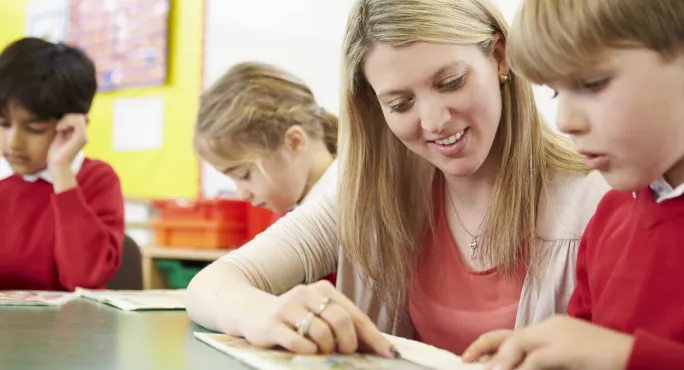The government is being urged to develop an “emergency” replacement for the baseline assessment, to support the “exceptional needs” of children starting Reception in the wake of the coronavirus crisis.
The internationally-recognised specialist behind the early years foundation stage (EYFS) profile, Jan Dubiel, is calling for a “hybrid model of teacher-led observational assessment” to replace the controversial Reception baseline assessment (RBA), due to be introduced in September.
The Department for Education (DfE) told Tes it intends for the current RBA to go ahead as planned, although this will be kept under review in light of the coronavirus crisis.
Coronavirus: Open letter calls on DfE to scrap baseline
Background: ‘Delay baseline tests and EYFS reforms’
DfE: ‘Baseline going ahead as planned’
Mr Dubiel, an independent early childhood education consultant who oversaw the implementation and moderation of the EYFS profile, said that while he considers the existing RBA to be “highly problematic”, a baseline or entry assessment of some kind is both “inevitable and necessary”.
As this year’s cohort will be “anything but ‘typical’”, Mr Dubiel said the current RBA should be suspended and an “emergency” baseline brought in for 2020, that “both addresses the needs of the individual children and provides an authentic picture of the cohort as a whole”.
He said the alternative baseline should consist of four main elements:
- A predominant focus and assessment of each child’s physical, psychological wellbeing and emotional state.
- An assessment of their ability to articulate and describe this; what we would term as “emotional literacy”.
- A focus on each child’s ability to socialise with their peers and adults and the expectations of Reception. Unlike older children who will still have some residual enculturation about the routines and expectations of “school”, this is less likely to be the case for younger children for whom this did not have time - nor maturity - to sufficiently embed before the lockdown occurred.
- An assessment of fundamental learning behaviours within the context of school; self-regulation and executive functioning being, at the very least, the starting points for this.
Mr Dubiel added: “Not only would this provide us with the unique national picture which will help shape future policy, but detailed and meaningful information for Reception teachers to support the obviously exceptional needs of the cohort as they start school.
“And finally, going forward...isn’t this a perfect opportunity to ‘reset’ what we assess on entry to Reception, a real chance to fundamentally review how we do this and what we consider to be ‘important’ about Reception children as they start school?
“Could this ‘emergency’ RBA evolve into something more authentic, useful, and - dare I say it - popular and accepted?”
Earlier this week, the UK’s largest education union threw its weight behind a campaign to ditch the new RBA amid “unprecedented disruption” caused by the coronavirus crisis.
Beatrice Merrick, chief executive of the Early Education charity, previously told Tes that implementing the baseline assessment in September would “make life impossible for everybody”.
A DfE spokesperson said: “We understand the challenging circumstances schools are facing and so are working closely with our delivery partners NFER to keep the progress of the Reception baseline assessment under review.”




